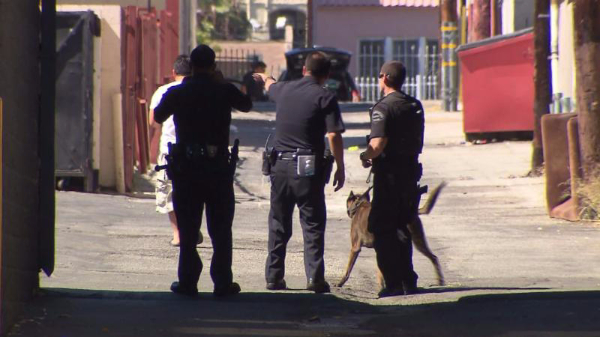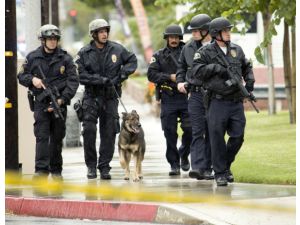
During our SWAT and K9 integration training many years ago, I first heard the warning “If you don’t train together, don’t deploy together” shared by Brad Smith and it became commonly used to hammer home the necessity of SWAT operators and K9 teams first training for high risk operations and deployments before actually deploying. Trouble has occurred when tactical teams have not trained together with K9 teams before actual deployments – and injuries have resulted and many narrowly averted.
“If you haven’t trained together, don’t deploy together!”
Several years later, I realized that this same warning should also be directed toward K9 teams that work with patrol officers and deputies – and perhaps it is more applicable – because who are the people K9 handlers are working with and alongside most often? Yet, the vast majority of K9 teams across the country – in my estimation – are deploying with patrol officers in high risk situations without having first conducted proper training to prepare for the risks and dangers associated with these deployments. A K9 deployment is a high risk situation. A K9 deployment is a team operation – and it requires teamwork. Good teamwork requires training.

“On the job training” is not the way to initially conduct business when patrol (backup) officers are preparing for and conducting a K9 deployment. As you well know, there are many different tactics, skills and communications that can be associated with a single deployment before, during and after an apprehension, suspect detection and/or physical arrest. Every K9 deployment – particularly if there is a physical apprehension with a bite – is unique based on, but not limited to, the individual suspect, the suspect’s level of resistance if any, the environment, the potential for additional suspects at or near the scene, the number of backup officers present, and the training and experience of those law enforcement officers involved in the deployment. Are your backup officers properly trained to work with you as a handler and protect you and others during a deployment?
“When was the last time you brought patrol officers to your K9 training to work with you as backup officers?”
In my canine liability classes, I’ve been using “If you don’t train together, don’t deploy together” for many years now as part of the “training with patrol” section and I pose the question; “When was the last time you brought patrol officers to your training session to work as backup officers?” It is important to not only conduct initial training before that first deployment, but conduct ongoing training to reinforce and refresh the skills, tactics and mindset necessary. It is considered a perishable skill.
I consider the “failure to train our backup officers” a serious liability issue as well as a safety issue that could get you and your agency in trouble – but more importantly, it’s a common sense issue. If a backup officer or handler is injured during a K9 deployment that could be deemed a result of not training together, do you think it might be a “failure to train” issue (Canton v. Harris, 489 U.S. 378, 1989) with serious liability attached for your agency? Should your agency consider using a little of its training budget now to limit your liability and reduce risks or simply gamble on writing the big check later following a claim or lawsuit after trouble occurs?
Take care, be safe and make every day a training day……
Bill Lewis II
This “reason” was originally shared on April 15, 2015.

“Trouble” isn’t always related to incidents or predicaments that directly result in lawsuits, claims or discipline. Often times, our actions or inactions that are missed, deliberately overlooked or downplayed may lead to nothing or can later lead to mistakes or bad incidents with minimal to serious repercussions. A reason we get in trouble can be minor or simple at first glance – or even serious – but a combination of these factors can often have disastrous consequences.
These “reasons” are provided periodically as a collection in-progress based on actual incidents and real attitudes as well as feedback received at HITS, the CNCA Training Institute, and the “Canine Liability 360” classes. As Gordon Graham says, “We haven’t found new ways to get in trouble.” So, as the list progresses, you may or may not read something familiar to you that you have personally experienced or seen others encounter. If you encountered or heard about it, did you learn from it?
